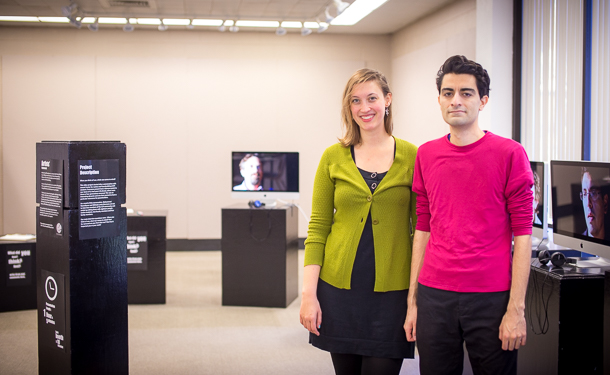Tess Cortes, a native of the Philippines, was ripped from her home in war-torn Liberia when she was 30 years old.
“We were advised to leave the country,” Cortes said. “I left with my two kids, my ex-husband stayed behind. He was living with his uncle.”
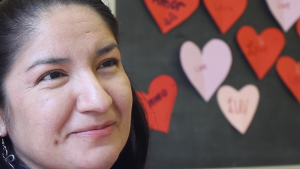
The West African country broke out in its first civil war in 1989. According to the U.N., 150,000 people, mostly civilians, died. About 850,000 people fled Liberia.
Cortes, 55, moved there from the Philippines in 1978 when she was 18 because her father was a doctor working for the Liberian government. He stayed in the country through the conflict as well.
Cortes graduated from the University of Liberia with a degree in zoology and minor in chemistry. She fled the country with her children to live with her mother and stepfather, who lived in Springfield, Mo.
“It was tough,” Cortes said. “It was very tough.”
She worked many jobs in Missouri until she was offered a job at the Cargill meat distribution facility in Mount Crawford in 2008. Cortes currently lives in Weyers Cave.
Cortes is one of the storytellers who spoke during the Many Voices of Harrisonburg, a May 21 event at Memorial Hall highlighting the changing face of the Shenandoah Valley.
Growing diversity
The free event was on the same day as the U.N.’s International Day for Cultural Diversity and Dialogue.
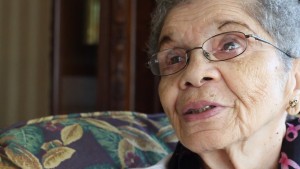
Sponsored by Church World Service’s Harrisonburg Immigration and Refugee Office and the Virginia Foundation for the Humanities, the event featured a documentary film along with several storytellers who are immigrants or refugees who settled in the Valley, along with children’s activities and games for an enriching multicultural experience.
[Watch Part I and Part II of the film.]
The event was funded by a grant from the National Endowment for the Humanities awarded to the Virginia Foundation for the Humanities called “Changing Faces of Virginia.” The foundation then split the $50,000 grant between six selected cities in the commonwealth.
“We have more and more immigrant communities coming into the state,” Lisa Lynn Porter, an assistant professor at JMU’s Sociology and Anthropology department and organizer of the event, said. “They chose six sites in Virginia that have growing immigrant populations that have the most significant change, and Harrisonburg is one of those communities.”
According to the Virginia Foundation for the Humanities, Harrisonburg has one of the largest concentrations of Latinos in the state, a population that has grown 280 percent in 16 years. About 200 refugees are resettled to the Harrisonburg area every year, said Rebecca Sprague, community program coordinator of CWS Immigration and Refugee Office.
The other five cities participating in the grant program include Arlington, Richmond, Roanoke, Norfolk/Virginia Beach and the Eastern Shore town of Onancock.
Porter said the Harrisonburg region also has growing Iraqi and Kurdish populations.
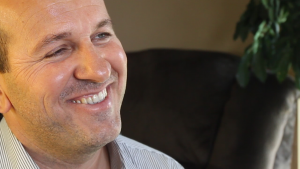
“If you look at our local school system, in January the reporting showed fifty-one different languages represented among students,” she said.
Power of storytelling
Instead of hosting a book or film festival, Porter said, the organizers thought storytelling and narrative would offer a more powerful picture of the refugees’ experience.
The storytellers shared their experiences of resettling to the area as well as the struggles they went through.
“It’s a powerful piece in understanding our community,” said Porter.
Mikhala Lantz-Simmons and her husband Mohammad Rasoulipour directed and produced the documentary film bearing the same name of the event. The 40-minute film features interviews from eight immigrants or refugees who have settled to the area.
[Watch Part I and Part II of the film.]
Lantz-Simmons, a recent graduate of Eastern Mennonite University’s Center for Justice and Peacebuilding, said the goal is to have the film available to show at area schools.
“We hope to tell the stories in a way that honors the participants and is really respectful for them,” she said.
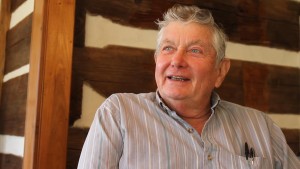
Lantz-Simmons found that the Friendly City has lived up to its name by providing a welcoming environment to newcomers.
“Harrisonburg is called the Friendly City, and from what people were saying, that really resonated with them,” Lantz-Simmons said. “I think all of them talked about how welcomely they were received and that it feels like home.”
Editor’s note: The article was originally published in the May 21, 2016 edition of the Daily News-Record. Because the event has concluded, some verb tenses have been changed for clarification. Three notes of correction: The grant committee plans to make the film available to schools, but will also create a toolkit for other groups to engage with the material. Storytellers at the event shared children’s stories from their culture rather than their own experiences of resettlement. The event was sponsored by several organizations, not only Church World Service and Virginia Foundation for the Humanities.
